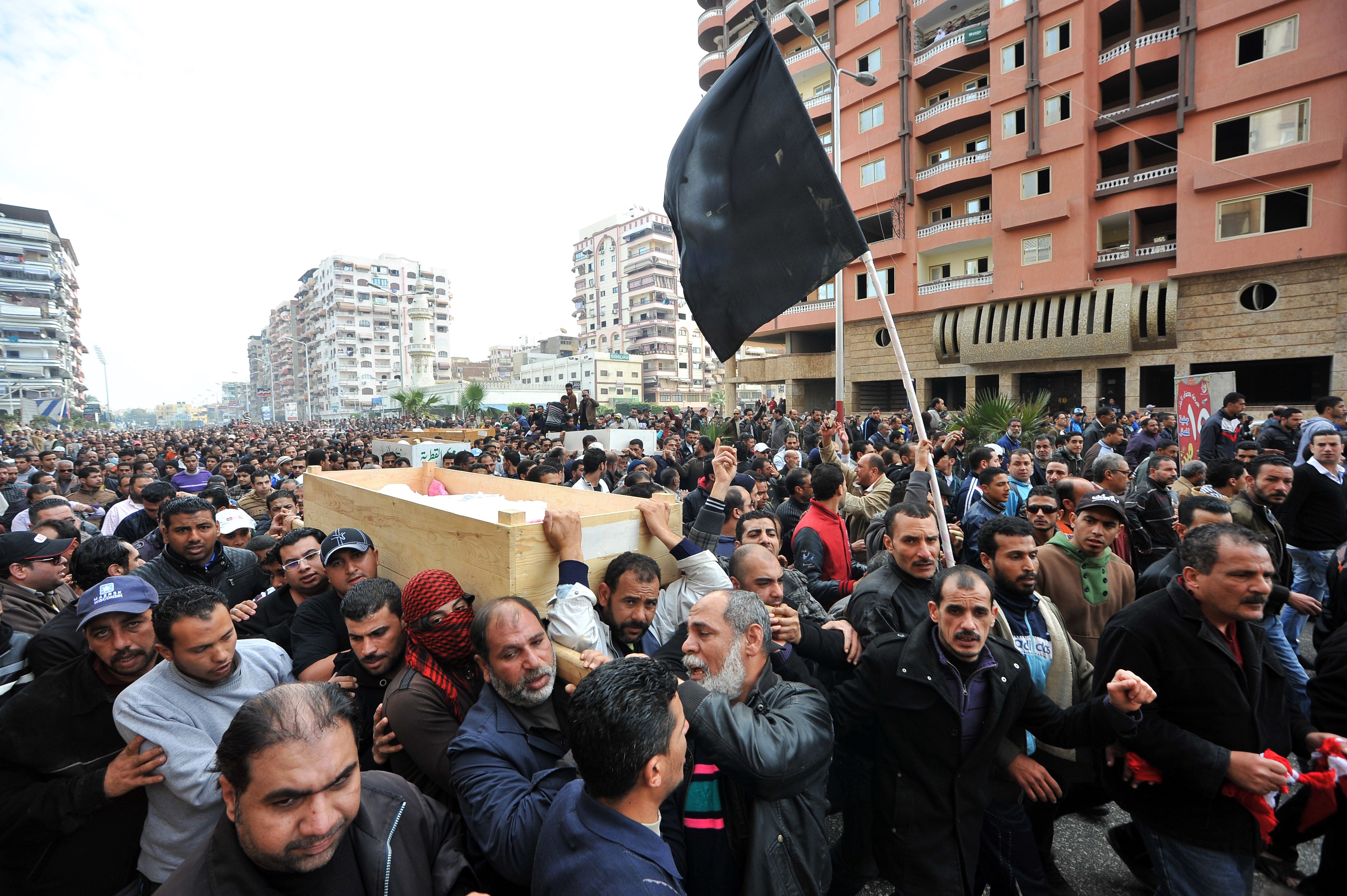
The Egyptian Centre for Economic and Social Rights (ECESR) accused security forces of using excessive violence against civilians in the canal cities of Port Said and Suez during protests marking the second anniversary of the 25 January Revolution.
A fact-finding report released by the ECESR on Saturday provided a detailed account of all acts of violence since Friday 25 January and throughout last week.
The ECESR covered the protests held outside the Suez government building on 25 January. It stated that protesters had several demands they wanted to submit to governmental officials. The protesters were reportedly given permission to enter the yard of the building; however, upon entering, the ECESR stated they were separated from one another by Central Security Forces (CSF), who attacked the other protesters with teargas.
As clashes erupted, eyewitnesses told the ECESR that a number of civilians fired gunshots at protesters from the top of the national security building, right next to the government building. Security officials then began pelting protesters with rocks from the top of the government building, which were met with rocks thrown by protesters. “Unidentified assailants” then attacked the police officials with Molotov cocktails, injuring one official.
A false rumour soon circulated among CSF that this injured police official was killed. The news caused a frenzy among Central Security officials, who began viciously attacking civilians outside the government building. Some of them targeted the gas pipes supplying a residential building, which was soon set ablaze. The ECESR stated the officials also attacked the firefighters who arrived later.
The ECESR accused security forces of using prisoners as human shields on 26 January. It also stated that the police stations were empty and the prosecution was out of service, so that none of the Suez residents could file reports about the violence. The clashes left 11 dead and 28 injured.
Meanwhile, in Port Said, civilians faced similar amounts of police brutality, according to ECESR. The social rights organisation stated clashes in the canal city erupted soon after the families received the verdict sentencing 21 Port Said residents to death on 26 January 2013 for their part in the football massacre which took place in the city in February 2012.
Families surrounded the prison where the convicted were held, furious about the verdict. Security forces shot live ammunition at random, aiming at the “chest, the head and the neck”. 31 were killed, and over 322 injured.
On 27 January, a popular funeral was held for 22 of those killed, only to be “unjustifiably” attacked with teargas, live ammunition, and birdshot. The attack caused those holding caskets to drop them, running for their lives. Seven more were killed following the attack, with over 630 injured, ECESR stated.
The next funeral, held on 28 January, was also unjustifiably attacked by security forces, says the report, with teargas and live ammunition also fired. The clashes which followed dragged on for a while; however, none were killed.
“The lesson the authorities should learn is that the revolution lives on in residential as well as work areas,” ECESR said in its report. “The revolutionary demands will be called for by the people until they are met—bread, freedom and social justice.”


